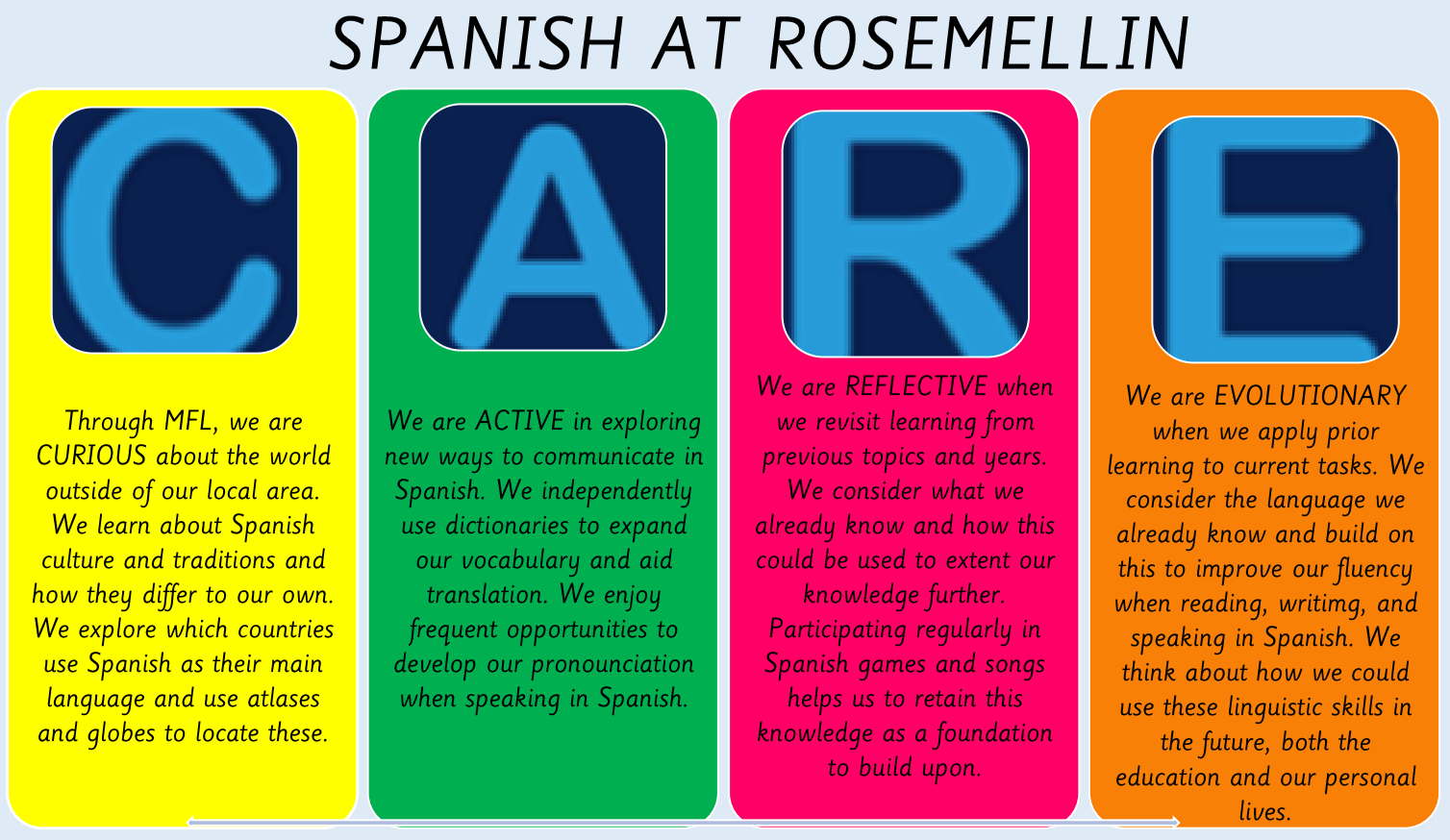MFL
Spanish is taught weekly as part of the KS2 curriculum. The content of the lessons follows the National Curriculum.
The learning journey is designed to build on prior learning, which is reactivated through games and songs, to encourage children to listen and speak confidently in the language.
Intent
At Rosemellin School, learning a foreign language is an important part of our curriculum, which provides an insight to other cultures and teaches children about the interesting and diverse world around them.
Through the delivery of high-quality Spanish teaching, our aim is to deepen our pupils’ understanding of the world, to enable them to express their ideas and thoughts in another language and to give them the tools to be able to read, write and converse in that language. Our Spanish curriculum aims to provide a strong foundation for learning further languages which can equip pupils to study and work in other countries and to develop a curiosity about and a respect for other cultures and ways of life.
Implementation
In KS2 at Rosemellin School, Spanish is taught through engaging, interesting and interactive lessons on a weekly basis.
Pupils are given opportunities to speak, read and write in Spanish, to ensure they have a broad and varied bank of skills by the time they move onto secondary education. Pupils learn: seasons, fruits and vegetables, the names of animals and family members, how to talk about the items found in the classroom, as well as explaining the weather at different times of the year.
Our curriculum is organised to ensure there is progression across year groups, enabling the children to revise and build on previous learning, making knowledge ‘sticky’.
The Key Stage 2 overview (see Pdf link below) shows the topic areas each KS2 year group will be studying throughout the academic year.
Pupils are taught vocabulary specific to each topic through a variety of activities.
The children learn to read and write vocabulary linked to these topics and will begin to use Spanish dictionaries to help to build their Spanish vocabulary bank.
In lower KS2 (years 3 and 4) the focus is mainly on learning nouns and adjectives, speaking using simple statements and asking simple questions.
As well as revising key vocabulary from years 3 and 4, the learning progresses in upper KS2 (years 5 and 6) with teaching beginning to focus on the grammatical rules of the Spanish language, incorporating these into lessons concentrating on a variety of topics.
The pupils begin to hold short conversations in Spanish, developing their pronunciation and intonation when speaking, as well as building on their reading and writing skills to write in full sentences.
Language Angels is the school’s chosen scheme and is a fully interactive programme to support the teaching of Spanish, accessible both in school.
The teaching of Spanish includes reading, writing and speaking activities to ensure all areas of language learning are covered. The children love using Language Angels. Fun and informative activities, including stories, songs and games, immerse children in the Spanish language, alongside high quality and engaging Spanish lessons, providing a fantastic foundation for language learning for our budding linguists at Rosemellin.

